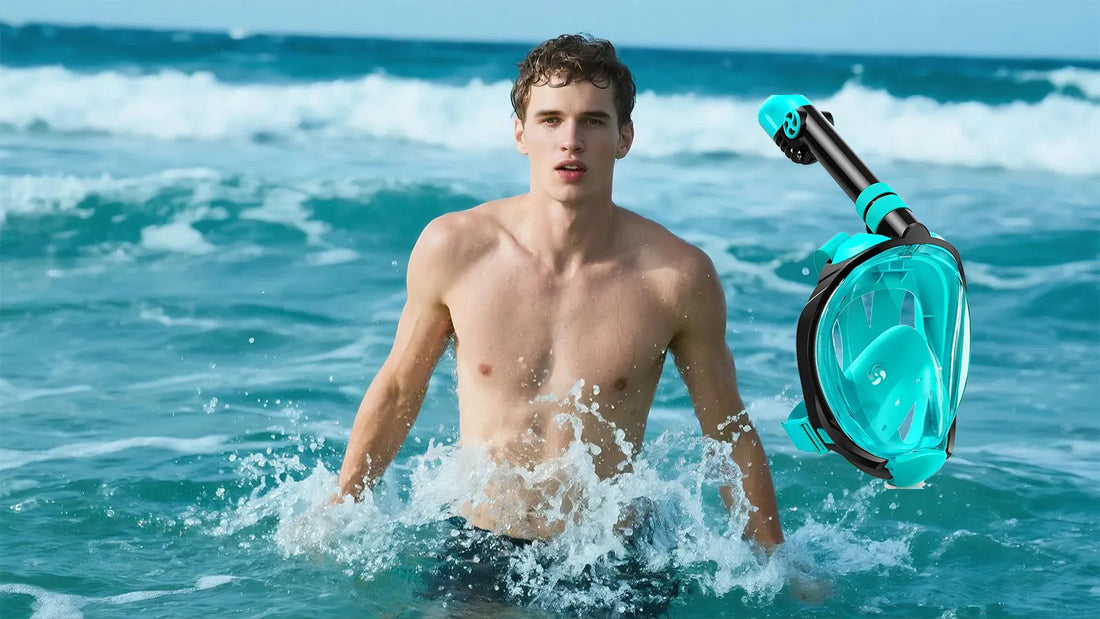Have you ever wondered why snorkeling masks are not allowed in swimming pools? While they might seem like a fun addition to your pool experience, there are several important reasons why they are discouraged. From safety concerns to hygiene issues, understanding these factors can help you make better choices for your aquatic activities.
Safety Concerns with Snorkeling Masks in Pools
One of the primary reasons snorkeling masks are not suitable for swimming pools is safety. Snorkeling masks are designed for open water environments, where the conditions and requirements are vastly different from those in a pool. In open water, snorkelers need to be able to see clearly underwater and breathe comfortably while swimming at the surface. However, in a pool, the confined space and the presence of other swimmers can create hazardous situations.
Snorkeling masks can obstruct your peripheral vision, making it difficult to see other swimmers or obstacles in the pool. This can lead to collisions, which can be dangerous for both you and others. Additionally, the long snorkel tube can pose a risk of entanglement, especially in crowded pools where swimmers are in close proximity to each other.
Hygiene and Maintenance Issues
Another significant concern is hygiene. Snorkeling masks are often used in natural bodies of water, where they can come into contact with various microorganisms and debris. When these masks are brought into a swimming pool, they can introduce contaminants that compromise the water quality. Pools are treated with chemicals to maintain a safe and clean environment, and introducing foreign substances can disrupt this balance.
Furthermore, snorkeling masks require proper maintenance to ensure they remain clean and functional. Failing to clean and disinfect the mask after each use can lead to the buildup of bacteria and mold, which can pose health risks. In a pool setting, where hygiene is paramount, using a snorkeling mask without proper care can be detrimental to both your health and the well-being of other swimmers.
Design and Functionality Differences
Snorkeling masks are specifically designed for open water snorkeling, and their features reflect this purpose. They typically have a wider field of vision and a built-in snorkel tube, which are not necessary for pool swimming. In fact, these features can be more of a hindrance than a help in a pool environment.
For example, the wide field of vision provided by a snorkeling mask is not needed in a pool, where the water is usually clear and the surroundings are familiar. The snorkel tube, which allows you to breathe while keeping your face submerged, is also unnecessary in a pool, where you can easily lift your head to breathe. Using a snorkeling mask in a pool can make your swimming experience less efficient and more cumbersome.
Regulations and Pool Policies
Many swimming pools have specific regulations and policies regarding the use of snorkeling masks. These rules are in place to ensure the safety and comfort of all swimmers. Pool operators are responsible for maintaining a safe environment, and allowing snorkeling masks can introduce unnecessary risks.
In some cases, pool policies may explicitly prohibit the use of snorkeling masks, while in others, lifeguards and staff may discourage their use based on the specific conditions of the pool. It's important to respect these rules and understand that they are in place for the benefit of everyone using the pool.
Alternative Options for Pool Swimming
If you enjoy the sensation of swimming with a mask, there are alternative options that are better suited for pool use. Swim goggles, for example, provide clear vision underwater without the bulk and potential hazards of a snorkeling mask. They are designed specifically for swimming and are much more practical in a pool setting.
Additionally, there are specialized training masks that can help improve your breathing and lung capacity while swimming. These masks are designed with pool use in mind and are a safer and more effective option than snorkeling masks. By choosing the right equipment, you can enhance your swimming experience without compromising safety or hygiene.
Environmental Impact
Using snorkeling masks in swimming pools can also have an environmental impact. As mentioned earlier, these masks can introduce contaminants into the pool water, which can affect the chemical balance and require additional treatment. This not only increases the maintenance costs for the pool but also has a broader environmental impact due to the increased use of chemicals.
Moreover, the production and disposal of snorkeling masks contribute to environmental pollution. By using more sustainable and appropriate equipment for pool swimming, you can reduce your environmental footprint and contribute to a healthier planet.
Educational Awareness
Raising awareness about the reasons why snorkeling masks are not suitable for swimming pools is essential. Many people may not be aware of the potential risks and may use these masks without understanding the consequences. Educational campaigns and clear communication from pool operators can help inform swimmers about the best practices for pool safety and hygiene.
By understanding the reasons behind the restrictions, swimmers can make informed decisions and choose the right equipment for their activities. This not only enhances their own experience but also contributes to a safer and more enjoyable environment for everyone.
Next time you head to the pool, think twice before grabbing that snorkeling mask. While it might seem like a fun idea, the safety, hygiene, and practicality concerns make it a less-than-ideal choice. Opt for equipment designed specifically for pool swimming, and enjoy a safer, cleaner, and more efficient aquatic experience.

